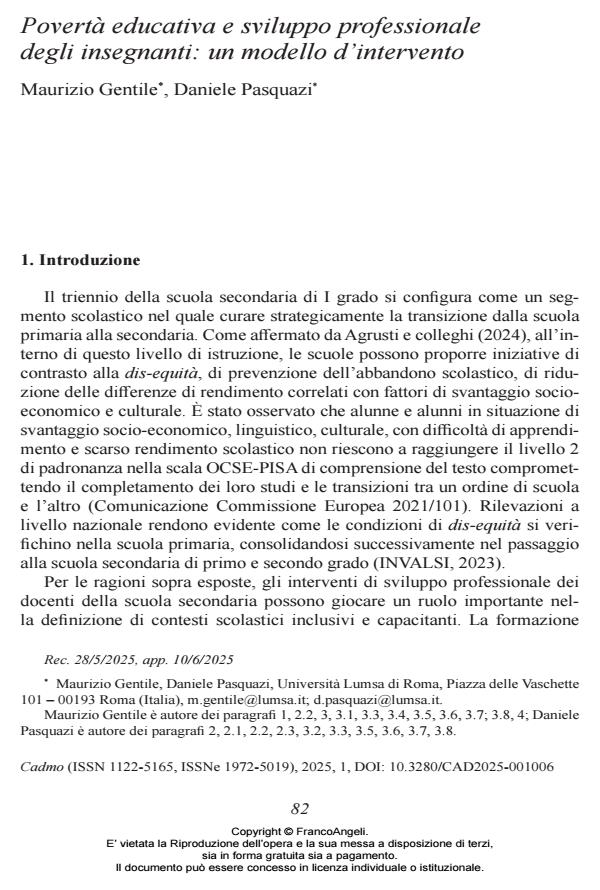Povertà educativa e sviluppo professionale degli insegnanti: un modello d’intervento
Journal title CADMO
Author/s Maurizio Gentile, Daniele Pasquazi
Publishing Year 2025 Issue 2025/1
Language Italian Pages 19 P. 82-100 File size 267 KB
DOI 10.3280/CAD2025-001006
DOI is like a bar code for intellectual property: to have more infomation
click here
Below, you can see the article first page
If you want to buy this article in PDF format, you can do it, following the instructions to buy download credits

FrancoAngeli is member of Publishers International Linking Association, Inc (PILA), a not-for-profit association which run the CrossRef service enabling links to and from online scholarly content.
Secondary school appears to be the most suitable educational pathway for reducing differences in student achievement, particularly those resulting from socioeconomic, linguistic, and cultural disadvantages, which, if not effectively addressed, can negatively impact the entire schooling process. Therefore, intervening in teachers’ professional development can have a critical influence on educational outcomes by reducing student disparities. The article describes an intervention model implemented as part of a PRIN2022 project that aimed to design teaching tools by modeling educational and learning practices experienced in classrooms.
Keywords: educational poverty, inequality, teacher professional development, literacy competence, intervention model.
Maurizio Gentile, Daniele Pasquazi, Povertà educativa e sviluppo professionale degli insegnanti: un modello d’intervento in "CADMO" 1/2025, pp 82-100, DOI: 10.3280/CAD2025-001006